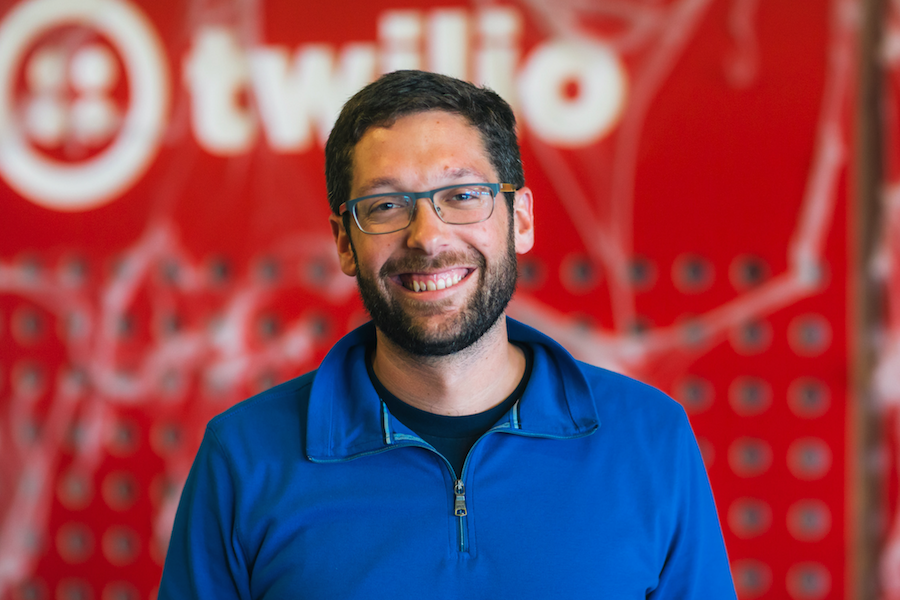It may not be a household name but Twilio, the tech world’s IPO darling of the year, is everywhere. Gotten a call from your Uber driver? Sent a message to your Airtasker or your Airbnb host? You’ve used Twilio.
Founded by Jeff Lawson in 2008, Twilio is a cloud communications provider giving developers the tools to integrate voice, video, and text communication into their products.
Patrick Malatack, vice president of product management at Twilio, said the growth of the company has come with consumers growing to expect more from the businesses and service providers they interact with – no longer can businesses treat customers badly and expect them to keep coming back.
“Businesses need to communicate with our customers the same way we communicate with other people, and if you think about it, the way that we communicate with other businesses too is really broken,” Malatack said.
“Everyone has had that communication experience where you call and they ask your name 10 times, and you’ve got to give them your mum’s dog’s maiden name just so you can get something done. We’ve all had that communication experience, but it doesn’t all have to be that way. You need to be able to start communicating with your customers as a business the same way that you communicate with your friends.”
How does that work, exactly? Well, Malatack said, we choose the channel of communication based on factors such as who it is we’re contacting and the time of day; would a call or a text be more appropriate?
“All those things are really critical, and humans make those decisions every day when they communicate with one another, but businesses don’t do that to us. When I talk to my brother I send him a text, when I want to talk to my dad I give him a call, and when I want to see my nephew I use Facetime,” Malatack said.
“Humans adapt these channels to the right modality at the right time, and businesses now have the opportunity to do this. A lot of this technology that has actually created the sort of inhumanity in our communications is now on the verge of solving it; we have AI, we have bots…a lot of these things are now available for businesses to really improve the way in which they talk to their customers.”
In looking to facilitate better experiences for customers, Twilio started with its own approach to developers; as Malatack puts it, Twilio’s job is making sure that the developer in an organisation is successful. This is particularly important now as the company looks to expand further into the enterprise market, where developers have other decision makers to report to.
“One of the things we have realised is that enterprises have other needs; they have a finance department, they have a compliance team, and so how we’ve needed to adapt the product is to support some of the other dynamics that you see within enterprise,” Malatack explained.
“We’re focusing on making sure it’s a great product not just for the developers in the organisation, but also for the finance team, the department that needs to bill and invoice in a certain way. Those are the ways that we’ve had to evolve the product over time.”
As VP of product management, Malatack was last month in Sydney speaking at StartCon and meeting with local customers – as well as Airtasker, the likes of Atlassian and Freelancer are among Twilio’s Australian clients – to understand their needs and the peculiarities of their own customers.
“What I think is really, really different in Australia is that customers here expect a really high quality of service, and they really want things to be integrated and seamless, which is I think unique to this market. I don’t think it’s the same way all around the globe,” he said.
As the company gears up for 2017, Malatack said Twilio is primed for growth thanks to its own internal culture and communication. Having worked at Microsoft prior to joining Twilio, Malatack said the way the Twilio product works, in the background of other big-name services, is reflected in the company itself.
“We’ve got the type of folks that wake up every morning and just want to work and solve a couple of problems and don’t really care who gets the credit at the end of the day, so one of the things I love about the company is that it attracts the sort of folks who are perfectly fine in the background, in the engine room,” he said.
“It’s a really neat place to be.”
Image: Patrick Malatack. Source: Supplied.




















Trending
Daily startup news and insights, delivered to your inbox.